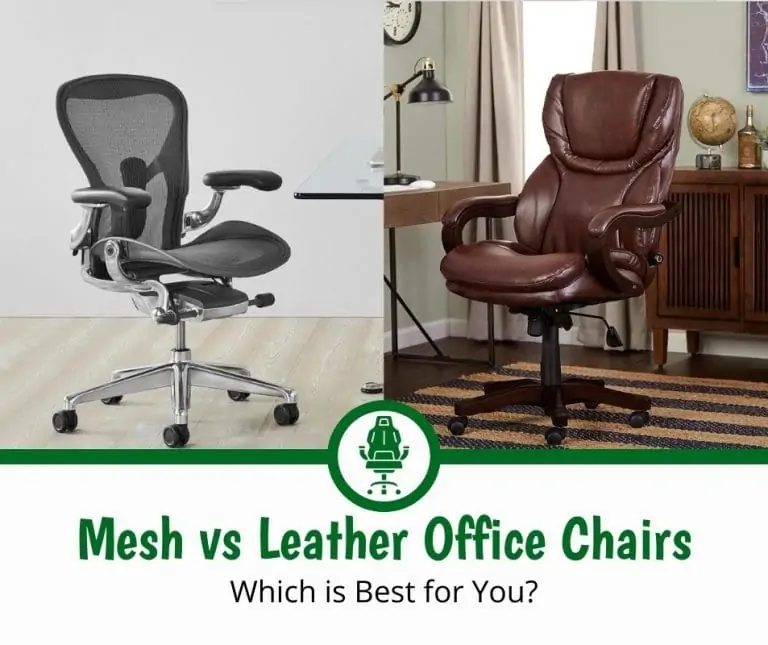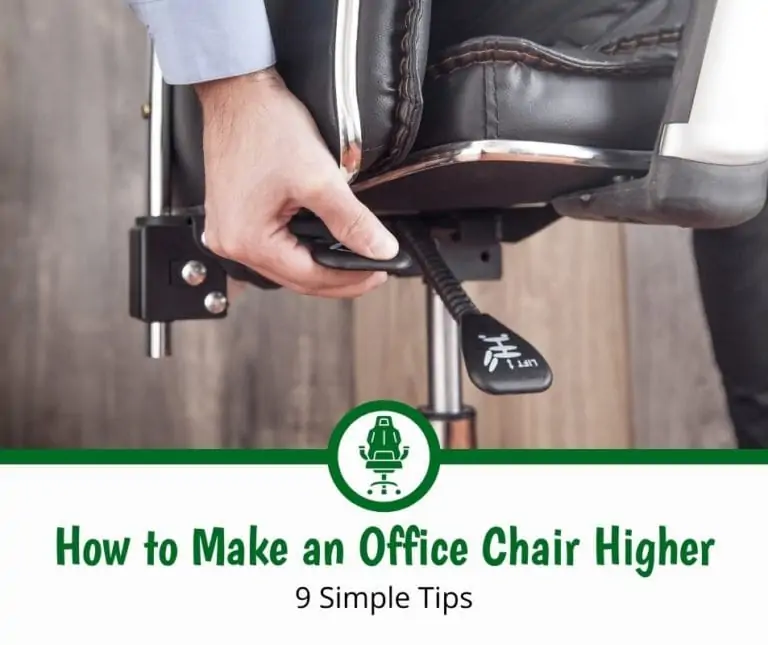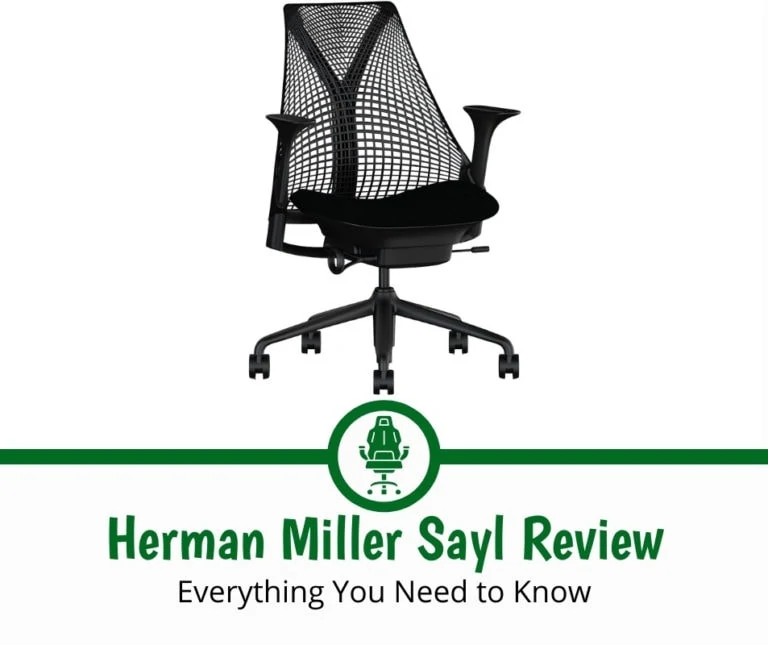Are Office Chairs HSA and FSA Eligible?

Having a desk job requires long hours of sitting, which can put a lot of strain on your back and neck muscles. As a result, you may be looking for an ergonomic office chair to alleviate any pain or discomfort.
If you’re someone who has a health savings account (HSA) or flexible savings account (FSA), you can use the savings as spending money to buy an office chair.
This may be a surprise since most people only use these accounts for medicines and treatments for their pre-existing conditions.
In short, office chairs are HSA and FSA eligible; however, you need a Letter of Medical Necessity (LMN) to buy them. This letter proves that the ergonomic office chair will alleviate the pain associated with your diagnosed health condition.
In this guide, we’ll discuss what HSA and FSA are, how to get an LMN, and how to use an LMN to purchase an office chair.
Understanding HSA and FSA
An HSA and FSA work similar to a personal saving account for medical expenses that aren’t covered by your health insurance plan. A flexible spending account (FSA) is a health care account you can obtain through your job. You’ll pay out-of-pocket payments to this account, and you won’t need to pay taxes on it.
Conversely, health savings account only can be opened if you have a high deductible health plan. The primary difference is that FSA can only be created through an employer, and the unused funds can be forfeited if you leave or lose your job. Also, FSA accounts must be used by the end of the year; otherwise, the funds may be lost. You can open an HSA through your bank or credit union, and they roll over from year to year, making it more convenient, especially for self-employed individuals.
The main objective of these accounts is for people to have money set aside specifically for medical expenses. Since it’s your account, you have a say on what you want to purchase with it, granted those items are eligible for your health needs.
Check with your healthcare provider to see what you can purchase with your HSA or FSA. Generally, this includes treatments, medications, and equipment that help to treat or prevent symptoms of your condition.
Are Office Chairs HSA and FSA-eligible?
Chairs don’t necessarily fall into the category of health-related costs. However, when you are medically diagnosed with a health condition such as sciatica, osteoporosis, or even obesity, having an ergonomic office chair is a necessity. That’s because sitting in a poor-quality chair may only exacerbate the symptoms leading to more pain.
Many insurance plans will pay for office chairs if the patient has a letter of necessity prescribed by a doctor. Office chairs are a vital part of treating health issues such as back, neck, knee, tailbone, and joint pain.
Why Can I Use an HSA or FSA to Buy an Office Chair?
The purpose of an HSA is to help you spend wisely on healthcare costs. Bad posture is commonly linked to back and neck pain. That’s why it makes sense that your HSA or FSA coverage would include ergonomic office chair expenses.
Ergonomic office chairs are customizable to fit the user’s individual needs. There are many types of unique ergonomic chairs, such as kneeling chairs, saddle chairs, standing seats, and ergonomic office chairs. They help to strengthen your muscles throughout the day by forcing you into the proper posture.
Additionally, it provides pain relief in your back, neck, and tailbone. For example, dynamic lumbar support systems can adjust to fit your exact spinal shape. It’ll even shift based on your body weight and changing body positions. This ensures you get tailored support while sitting throughout the day.
Many physicians and chiropractors recommend ergonomic office chairs when treating back-related issues, which is why they are HSA and FSA eligible.
How to Receive an LMN for an Office Chair
A letter of medical necessity is composed by a medical professional such as your doctor. The content of the letter specifies the service, product, or medication necessary for your health.
For example, it’s highly unlikely that your healthcare provider will cover your office chair purchase, even if you have an underlying back condition. As a result, it’s beneficial to see a physician or chiropractor and have them write up an official LMN.
Specifically, the letter will include:
- Patient ID – your name, date of birth, and insurance information
- Physician ID – name and relationship with the patient
- Date and diagnosis – the diagnosis that led to the specific treatment
- Medical history and condition – the specific condition and history that relates to needing an office chair
- Medical necessity – the office chair and why this treatment is necessary
- Supporting literature – any information such as publications that support the reasoning that an office chair can help reduce your symptoms
Sometimes the chiropractor and doctor will prescribe a particular type of office chair that would be most beneficial for the patient.
How to Use an HSA or FSA for an Office Chair
Always check with your provider about the rules on ergonomic office chairs covered. This includes knowing the requirements needed to purchase them and where to go to buy them.
We recommend going to retailers that already have HSA or FSA-eligible items. Retailers like Amazon, Walmart, and the HSA Store are the places with the widest selection of office chairs. You can filter by eligibility, price, and even brands. Depending on your account, choose a chair that fits your budget and your health needs.
Once you’ve chosen your chair, you’ll usually have to pay using your own money. Then keep the receipt so that you can file for reimbursement. For an FSA, you’ll need to talk to your employer, while an HSA means you’ll need to file a claim from your healthcare provider. Keep in mind that it usually takes a few weeks before the reimbursement gets back to you.
When Can’t You Use Your FSA for an Office Chair?
Remember that while office chairs are FSA and HSA eligible, that doesn’t mean you’ll be able to receive the benefits. If you don’t have any conditions or diagnoses, you’ll have to pay out-of-pocket. Getting an office chair without a health condition doesn’t qualify for reimbursement; thus, it can only be used for medical purposes.
You won’t be able to make a health claim either. A doctor needs to write a letter of medical necessity to prove that the chair can relieve your symptoms. The easiest way is to see a chiropractor.
Chiropractors treat all patients and typically recommend ergonomic office chairs to everyone. Doctors and chiropractors use x-rays to diagnose conditions like cervical stenosis, sciatica, pinched nerves, spinal cord disorders, spondylosis, vertebrae factors, thoracic pain, arthritis, osteoarthritis, degenerative disc disease, and others. Even chronic back pain that requires frequent chiropractic visits is enough to become eligible for a letter of medical necessity.
What Would Happen If You Buy An Office Chair Using an HSA/FSA Account Without an LMN?
Purchasing anything from your HSA or FSA account requires that these items are qualified medical expenses. What if you’ve purchased an office chair without an authorized letter of medical necessity? In this case, the office chair isn’t a qualified medical expense.
When filing your taxes, you must report the qualified medical expenses using your FSA account. Any items that weren’t a medical expense will be added to the income tax along with an additional 20% tax penalty. Remember that everything on your tax return must be accurate; therefore, you can’t claim the product as a qualified medical expense. We recommend going through a medical professional from your provider and getting a letter of medical necessity.
Is It Recommended to Use an HSA or FSA When Buying Office Chairs?
Using your funds to purchase an office chair is highly subjective. You’ll need to determine whether your current funds can cover all the medical expenses that you’re planning.
This means you’ll need to identify all the treatments, medicines, and other things you need that aren’t covered by insurance. If you’re planning to save money for a bigger treatment or medical bill, purchasing an office chair may not be worth it.
However, if you do have the fund in your account, an office chair is well worth the investment. Most workers sit at least eight hours a day, which is prone to worsening their health condition. Ergonomic office chairs can significantly reduce your pain and allow you to focus better, which improves your productivity. Office chairs have a long shelf life, meaning investing in them will pay dividends for many years to come.
Frequently Asked Questions
Here are other commonly asked questions that pertain to using HSA and FSA’s to purchase an office chair.
How to Obtain a Letter of Medical Necessity (LMN) for Office Chairs?
A doctor, registered nurse, chiropractor, occupational therapist, or physical therapist can write you a letter of medical necessity for an office chair. Sometimes it’s more beneficial to have multiple medical professionals sign your letter. The letter should explain the health condition you have and how office chairs can alleviate the symptoms associated with that condition.
How to Make a Purchase with Your HSA or FSA Eligibility?
Typically, you’ll need to shop on pre-approved merchants with HSA and FSA-eligible products. You can pay out-of-pocket and submit receives for reimbursement or file a claim with the required documentation.
However, having FSA or HSA debit cards automatically withdraws the funds from the card. They
work just like a regular debit card, making it easy to purchase.
What Makes a Chair FSA or HSA Eligible?
For a chair to be FSA or HSA eligible, it needs to be considered ‘ergonomic.’ That means the chair must support a healthy posture and adapt to your body type and spinal shape.
Here are the following features that the office chair must have:
- Backrest angle adjustment: Adjusting the backrest angle allows you to achieve the optimal support needed for your back. Reclining the angle helps to alleviate the pressure placed on your spine.
- Adjustable arm support: Proper arm adjustment prevents carpal tunnel syndrome and reduces stress in your wrists and arms.
- Swiveling base: The chair’s ability to turn when seated prevents potential awkward motions and limits the strain placed on your back.
- Adjustable lumbar support: This support helps to fill the gap between the chair and the lumbar area. As a result, you can easily sit upright and won’t be prone to leaning forward.
Final Thoughts
The good news is that your HSA and FSA can be FSA-eligible. Of course, you need a physician to write a letter of medical necessity, which means the chair is used for medical purposes.
Unfortunately, you’ll have to pay for the office chair out of pocket if you don’t meet these stipulations. For FSA spending, consult your employer to discuss how you can get reimbursed for the purchase.
Since your office chair is meant to improve your health condition, there’s a great chance you’ll be purchasing a highly ergonomic chair to fit your needs.
Now you’re ready to take what you’ve learned and get yourself a new office chair!




